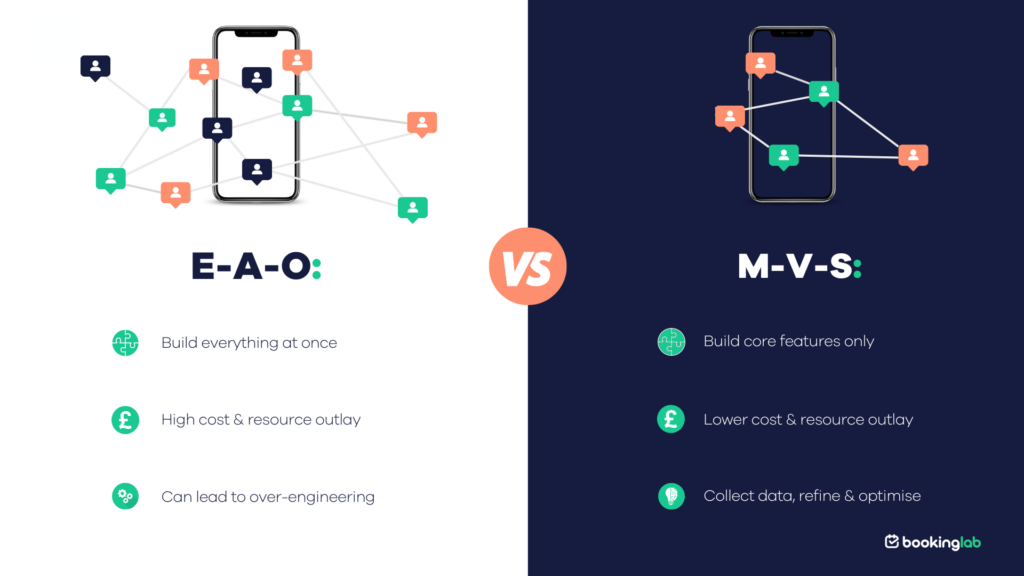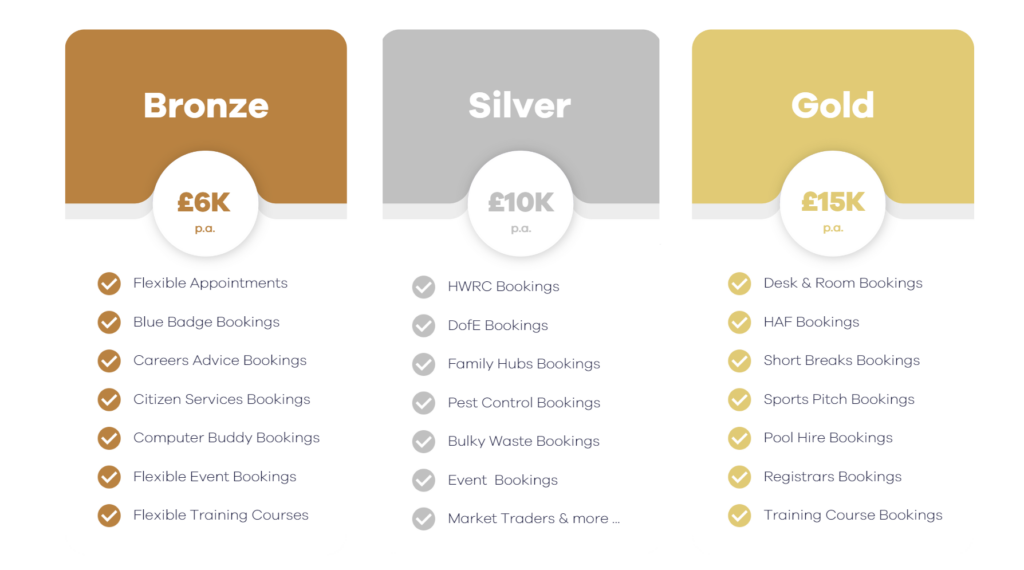The framework we’ve used to help 30+ councils create minimum viable services.
What is a Minimum Viable Service (MVS)?
Let’s dive right into what a Minimum Viable Service (MVS) is & why this concept is important for modern public services.
So, a MVS is built with only the core functionality required to be viable.
The idea is simple.
You build a stripped-back iteration of a service. Then, you use it to collect operational data & user feedback so that informed decisions can be made on:
- How effective it is
- If it should be enhanced &
- Where it should be enhanced
Importantly, this enables service designers to create experience-led services without over-engineering.
Minimum Viable Services (MVS) & Minimum Viable Products (MVP) are widely used across the private sector due to the associated cost, efficiency & user experience benefits.
However, in light of recent budget cuts, growing demand & the expectations of modern citizens — it’s clear how Minimum Viable Services can also deliver value for public sector organisations.
Especially considering the high time, cost & resource outlay associated with designing & building a digital service all at once.

So, why are Minimum Viable Services so important for the modern public sector?
90% of local authorities face budget gaps for 23/24, totalling around £3.2 billion.
This means that councils must find new ways to meet the expectations of modern citizens whilst also reducing the cost to serve.
This is no mean feat.
Especially given that a decade’s worth of technology & lifestyle changes has transformed citizen expectations.
In fact, 85% of residents now expect public services to be on par with private sector experiences (Accenture, 2022).
So, the bad news is that councils have to do more with less.
But, the good news is that by applying the Minimum Viable Service concept, councils can create citizen-centric services faster & cheaper.
Let us explain.
In short, by rolling out a minimum viable service, you’ll benefit from the following:
- Lower development costs: a MVS requires less time & resources to develop
- Faster time to value: Services get digitised faster, allowing you to generate savings quickly
- No over-engineering: Make more informed decisions about which features to add/remove
- Citizen-centric services: Better understand user needs & tailor services to improve citizen experience
- Reduced risk: Test uptake before investing time & resources into building a full-featured version
- Reduced complexity: Minimum Viable Services keep solutions simple for citizens & staff
- Improved focus: Minimum Viable Services focus on the most critical features for citizens. This means they are tailored to citizen needs & can lead to a better user experience.
So, now that we’ve discussed the benefits that Minimum Viable Services offer the public sector, let’s look at the 3-step framework you can use to create them.
The NSR Framework.

The NSR Framework is a simple 3-step tool that you can apply to any council-ran booking service & we use it to:
- Create experience-led, citizen-centric booking services
- Stop over-engineering &
- Save time, money & resources
Here’s how it works.
Stage 1: Nothing.
In the beginning, we have no concrete requirements.
So, this process starts with us working with our community to identify a common challenge.
This could be anything from the need to reduce queuing at a Household Waste Recycling Centre to the need to improve access to services like:
- Pest Control
- Social Care
- Facility Hire, or
- Any other citizen-facing service
Interestingly, one thing we see time & time again is that councils are facing very similar challenges.
Now, we understand that each council is unique.
So, of course, there will be some differences in service requirements — and we’ll address these differences in stage two of this framework.
However, from our experience working with 30+ councils across 175 service areas — the core functionality councils require from their bookable services is (for the most part) the same.
This presents a HUGE opportunity for more collaboration.
That’s why once we’ve identified a common challenge, we’ll work with our community & analyse data from over 15 million citizen interactions to create a standardised set of service requirements.
Once we have these requirements, we build the first iteration of a low-cost, high-power, Minimum Viable Booking Service.
Stage 2: Something.
At this stage, we build & roll out the first version of the Minimum Viable Booking Service.
We do this for two reasons:
- Firstly, so that we can get services online quickly, minimise delivery costs & reduce the time to value
- Secondly, so we can collect service-specific data & user feedback
This part of the process is crucial.
Because as we mentioned before, each council is different.
With this in mind, this stage is all about pushing the solution to live & using it to collect data at the council level so that we can create services that work for their citizens & staff.
Stage 3: Refined.
The operational data collected at stage two is then analysed so that the correct decisions can be made on:
- If the MVS should be enhanced &
- Where the MVS should be enhanced
Importantly, this enables councils to focus on developing functionality that users actually need
By doing this, they’re able to create experience-led services without over-engineering.
So, if the data shows that additional functionality is needed, we’ll add it at this stage, push the solution to live, start collecting data & then repeat the refinement process.
This continual back-and-forth dataflow between the something & refined stage ensures that booking services evolve based on user needs.
Learn more:
This was a super quick intro into how we use Minimum Viable Services to help our council community create citizen-centric booking services faster & cheaper.
So, if you’d like to dive into this in more detail & get access to a free pilot of Minimum Viable Booking Service to test this framework out for yourself, click here.
